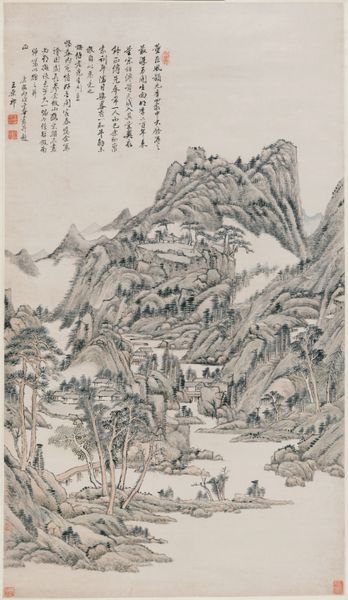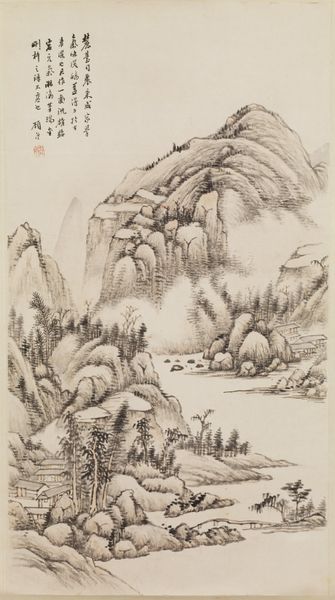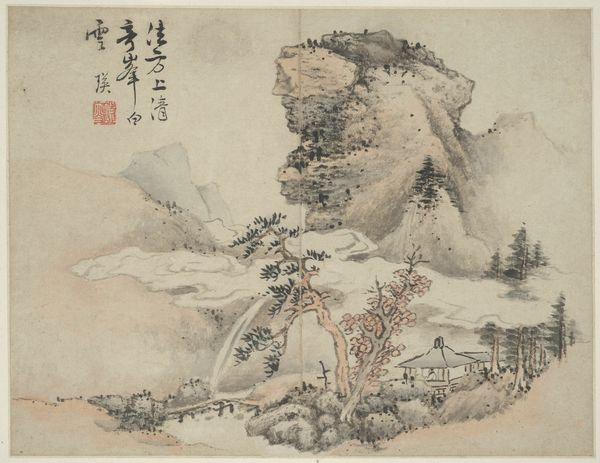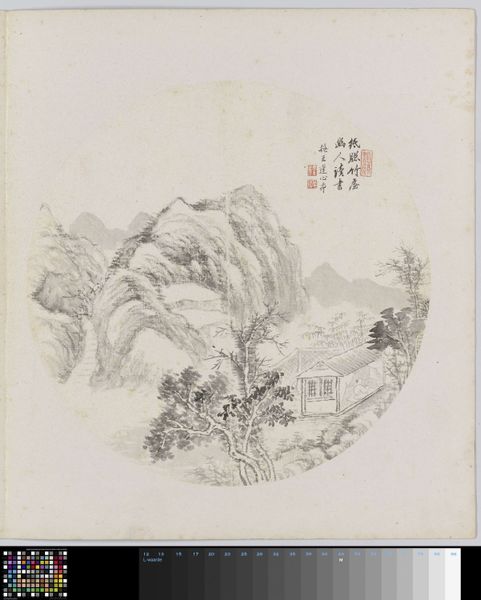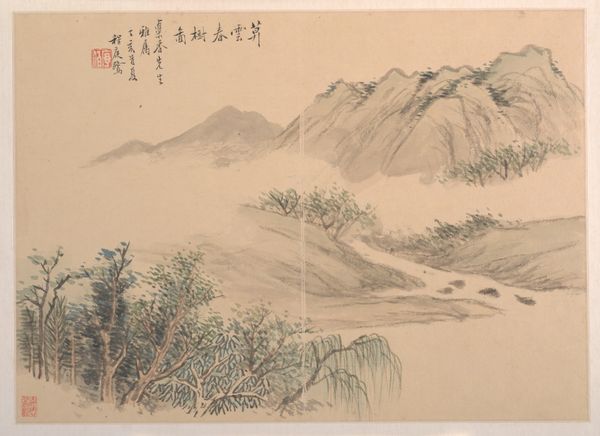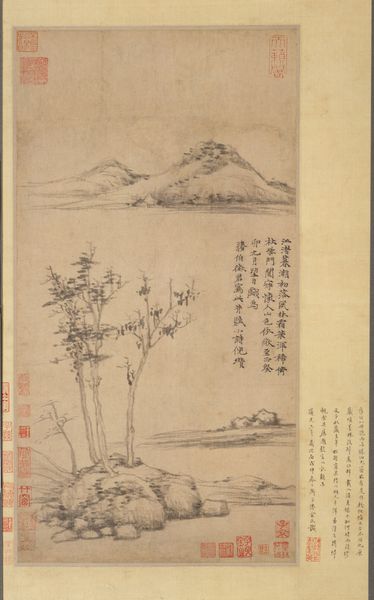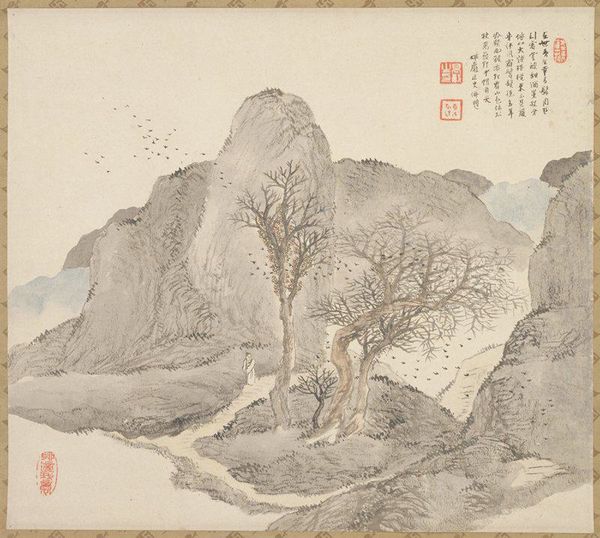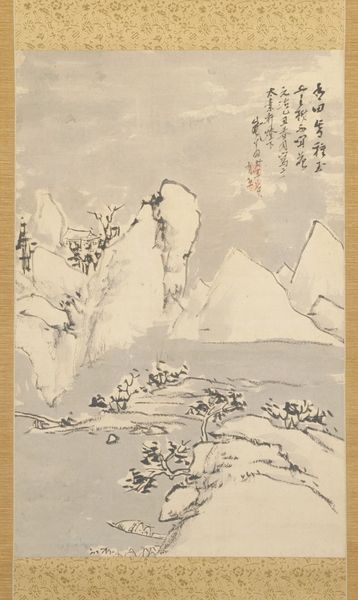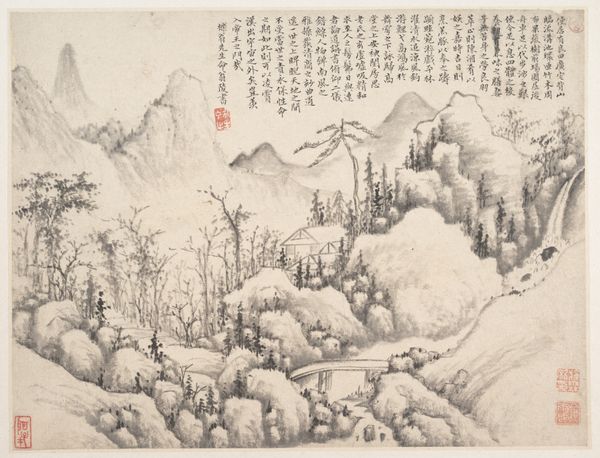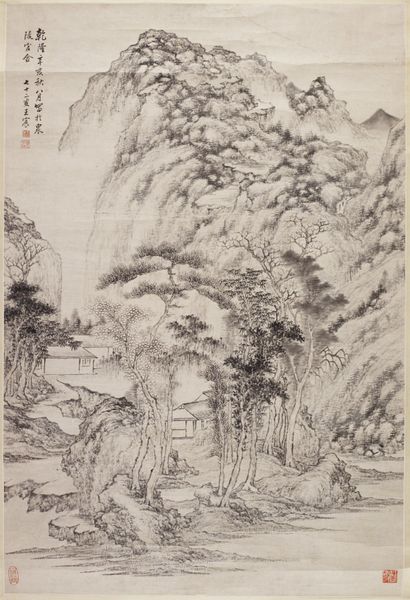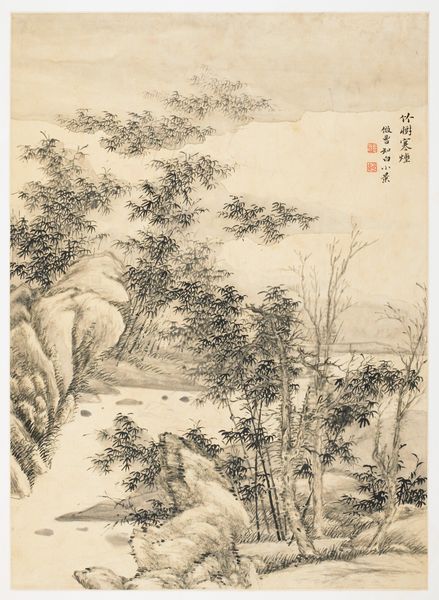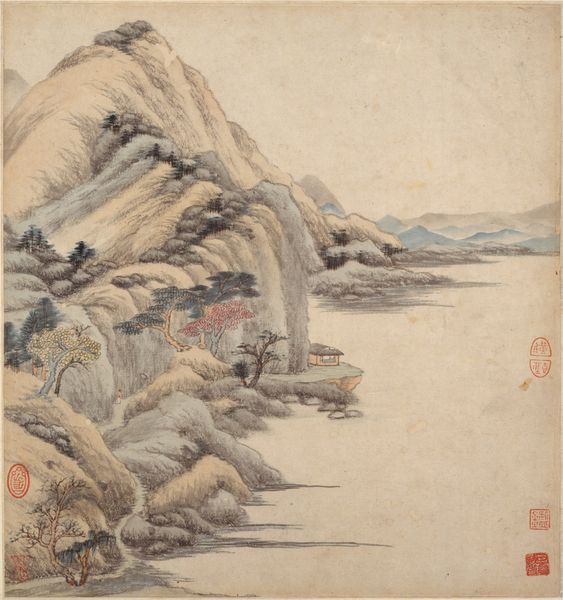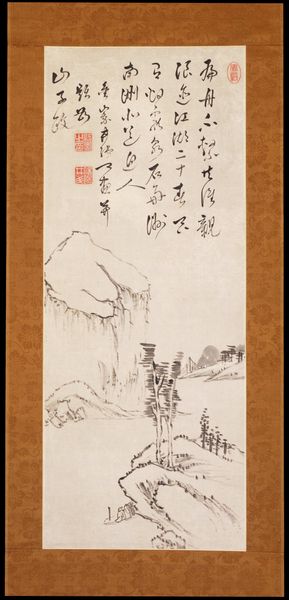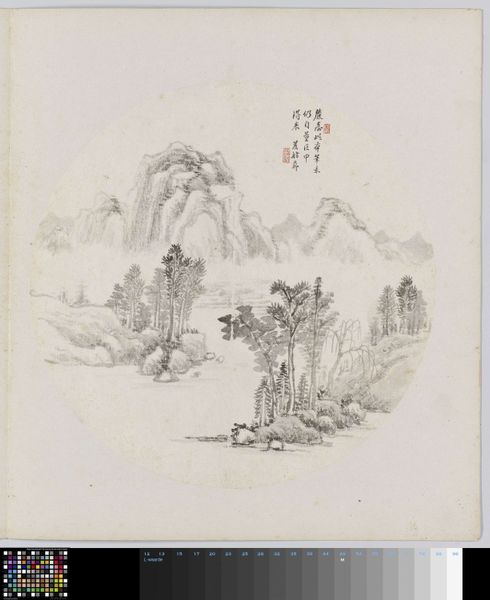
drawing, paper, ink-on-paper, hanging-scroll, ink
#
drawing
#
asian-art
#
landscape
#
paper
#
ink-on-paper
#
hanging-scroll
#
ink
#
orientalism
#
china
Dimensions: 36-1/2 x 13-13/16 in. (92.7 x 35.1 cm)
Copyright: Public Domain
Curator: The work before us, titled "Landscape in the Manner of Ni Zan," was created by Huang Ding in 1717. It is executed in ink on paper, presented as a hanging scroll, and now resides here at the Minneapolis Institute of Art. Editor: Instantly, it strikes me as sparse and quiet. There’s so much empty space, which almost amplifies the details, like a haiku emphasizing a single dewdrop. It breathes. Curator: Exactly. Huang Ding strategically deploys negative space as a compositional tool but also invokes philosophical undertones common during that period. He is playing with the established styles and techniques to explore tradition. Notice the starkness. It uses the ink economically. Editor: There’s an almost skeletal quality to the trees. You feel the chill in the air, the kind of starkness that leaves you contemplating mortality over a warm cup of tea. Curator: One could see how the materials speak to broader societal currents, ink, readily available and affordable in the marketplace. The choice to work “in the manner of” is a commentary on artistic lineage and social status as an artist and an appropriation of cultural value through an artistic labor. Editor: Speaking of artistic labor, it seems almost effortless, doesn't it? Each stroke suggests so much with such economy. I wonder about the hours of practice and the mastery required to appear so unburdened. It has an amazing and soothing aesthetic. Curator: What seems effortless belies the labor involved in both sourcing and mastering a medium like ink on paper, from grinding the ink stick to controlling the absorption rates of the paper itself. Huang Ding demonstrates careful material awareness as a commentary in response to cultural value through consumption. Editor: Right. I was thinking about that…all those silent hours of the artist alone in the studio, coaxing the ink to mimic a vast landscape. It becomes, I suppose, a collaboration with the material itself. Curator: And the artist’s skill and intent transform raw materials into cultural meaning that impacts a broad community, both contemporaneous with its production and long afterwards as we engage with it centuries later. Editor: That's beautifully put, It’s a gentle reminder that the mundane becomes profound through intention, creation, and artistic craft. Curator: Absolutely. And examining material realities gives us a perspective on the choices and labor involved, changing the dynamics between maker and audience.
Comments
minneapolisinstituteofart about 2 years ago
⋮
Huang Ding, also known as Kuang Ting and Du Wang Ke, was from Changzhou in Jiangsu Province. Like many Qing orthodox painters, he was influenced by the aesthetic theories of Dong Qichang (1555-1636) and he studied the landscape of Song and Yuan masters. Signed paintings by Huang cite the styles of Dong Yuan (c. 900-962), Ni Zan (1301-1374), and Dong Qichang as inspiring his own work. This simply composed, dry-brush landscape featuring a "one corner" foreground composition with a stand of bare trees and a scholar's hut separated from distant mountains by a tilted water plane suggested by blank paper is a compositional formula first popularized by the great 14th century literatus Ni Zan. Huang captures the character of the antique in this work by absorbing the compositional elements and dry brush technique of earlier masters.
Join the conversation
Join millions of artists and users on Artera today and experience the ultimate creative platform.
